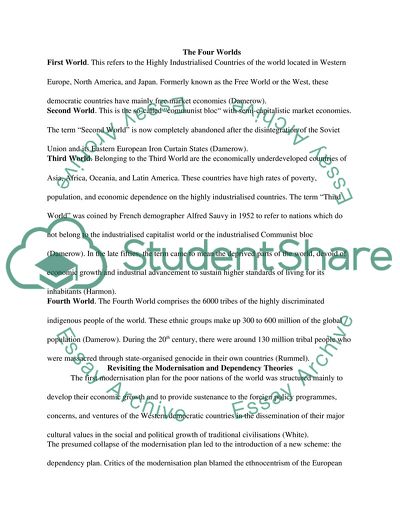Cite this document
(Modernization Theory Versus Dependency Theory Essay, n.d.)
Modernization Theory Versus Dependency Theory Essay. https://studentshare.org/sociology/1745259-does-the-notion-of-a-third-world-continue-to-have-any-validity-in-todays-world
Modernization Theory Versus Dependency Theory Essay. https://studentshare.org/sociology/1745259-does-the-notion-of-a-third-world-continue-to-have-any-validity-in-todays-world
(Modernization Theory Versus Dependency Theory Essay)
Modernization Theory Versus Dependency Theory Essay. https://studentshare.org/sociology/1745259-does-the-notion-of-a-third-world-continue-to-have-any-validity-in-todays-world.
Modernization Theory Versus Dependency Theory Essay. https://studentshare.org/sociology/1745259-does-the-notion-of-a-third-world-continue-to-have-any-validity-in-todays-world.
“Modernization Theory Versus Dependency Theory Essay”. https://studentshare.org/sociology/1745259-does-the-notion-of-a-third-world-continue-to-have-any-validity-in-todays-world.


